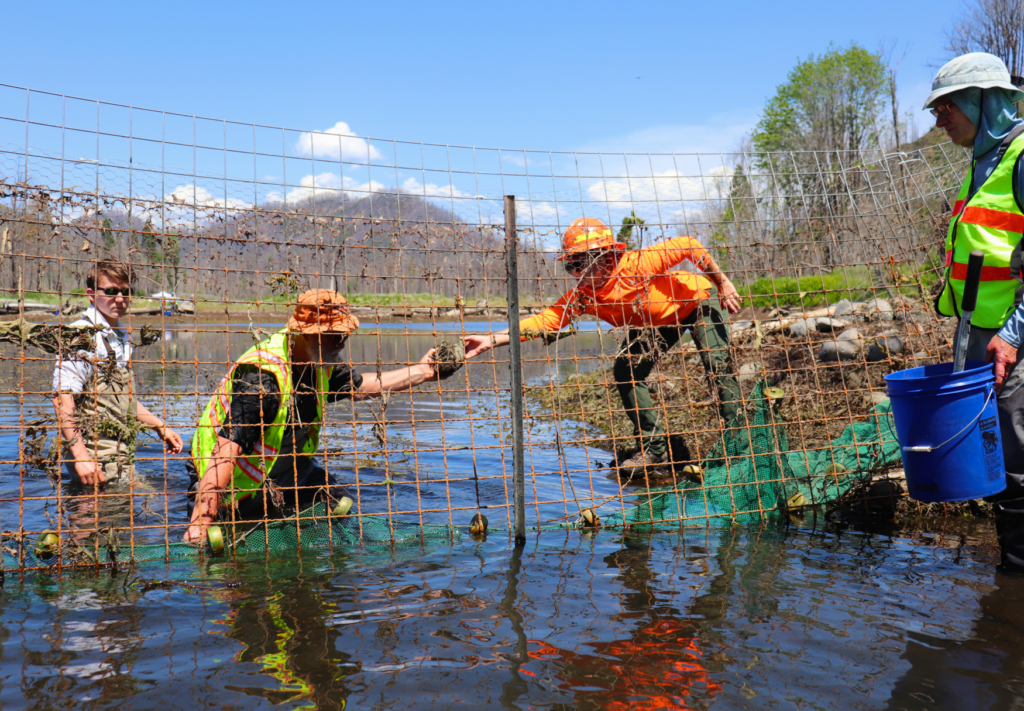Two and a half years after the Holiday Farm fire burned more than 173,000 acres in the McKenzie River valley, partners are breaking ground on the second and final phase of floodplain restoration work at Finn Rock Reach, a 278-acre conservation area owned by McKenzie River Trust. Started in the summer of 2021, restoration activities have included reshaping nearly 90 acres of floodplain forest and returning the area back to aquatic habitat along the Middle McKenzie River.
The project, led by partners at McKenzie River Trust, the US Forest Service, and the McKenzie Watershed Council, builds on years of investments in the Middle McKenzie Valley. The work recreates historic connections between the river and its floodplain, increasing habitat diversity and providing slow-water areas to capture sediment. On any given project day, people passing the area on Highway 126 can expect to see large equipment moving soil, rocks, and trees. Through excavation, new channels will be created and adorned with engineered large wood structures that will support the slowing and spreading of water across the site. The addition of large wood promotes improved water quality and provides critical habitat for fish and wildlife, including endangered Spring Chinook salmon who use the area for spawning and rearing.

Kate Meyer, a Fisheries Biologist for the U.S. Forest Service, has been working on the project since 2019 and shares that “the USFS is excited to partner with McKenzie River Trust on this project as it complements completed work and planned future work to restore floodplain connectivity to the Middle McKenzie Valley and help recover Chinook and bull trout populations.”
To date, partners have restored more than 900 acres between Finn Rock and the headwaters of the McKenzie River. These projects have numerous community benefits beyond fish and wildlife. Projects like this help to protect drinking water, especially after large-scale fires. According to Susan Fricke, the Water Resources and Quality Assurance Supervisor for EWEB, “These large-scale restoration projects help build resiliency for downstream infrastructure such as EWEB’s water treatment plant at Hayden Bridge that serves 200,000 customers. These projects have many benefits including dropping out sediment and contaminants and slowing down water during storm events by spreading the water across a floodplain.”
This project is made possible by committed community partners and funders including the U.S. Forest Service, the McKenzie Watershed Council, the Eugene Water & Electric Board, the Bureau of Land Management, the Bonneville Power Administration, the Oregon Watershed Enhancement Board, The Oregon Department of Fish and Wildlife, the National Oceanic and Atmospheric Administration (NOAA), BCI Contracting Inc., Wolf Water Resources, the Pacific Lamprey Initiative, and the Oregon Department of Transportation. Additional funding for this project was directed through the offices of Senators Ron Wyden and Jeff Merkley and former Congressman Peter DeFazio through Congressionally Directed Spending.






